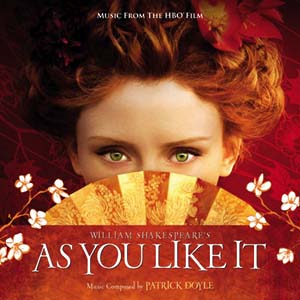“All the world’s a stage,
And all the men and women merely players.
They have their exits and their entrances,
And one man in his time plays many parts.”
– As You Like It, Act II, Scene 7
One of Shakespeare’s most famous lines is delivered by Jaques in the comedy As You Like It. Jaques goes on to describe seven “parts,” each one a stage of life that we experience, but this quote is explored not only in terms of mortality, but also in terms of self-discovery in this folk tale of a story.
I do believe we play different roles for different people at different times in our lives. At work, I’m a young professional with a customer service orientation and hard-work attitude. With my closest friends, I’m an absolute geek obsessing over Shakespeare, Marvel movies, and Doctor Who. With my family, I’m a little of both.
What do we learn about ourselves in these roles? In each role some of our true nature is revealed to others, and to ourselves. We can mask our true identity but reveal our true self.
We discussed this whole concept of true self a lot in our discussion of Henry IV, Part 1 and Part 2, and Henry V. Hal was both a young ruffian having a good time and a prince destined to be king. He would goof off with the lowlifes at the local tavern and then lead an army into battle alongside his kingly father. Which was his true self, and which was the act? Or is there truth in both?
And maybe in one of our roles our truth attracts another “player.” Hopefully the role we are playing at the time is our most sincere part. When we meet this other player, he or she improvises with us. Then we stay in these roles and draw it out until we’ve produced a full-length play. And we stay in that beloved role until the curtain closes, “sans everything.”
In As You Like It, Rosalind plays a role that allows her freedom of speech and opinion. As Ganymede, she can say what she wants and do what she wants because, for most of he play, her love doesn’t know it’s her. She can be her true self and in that guise gets the chance to know her love. She can test him, she can crack wits, and she can broach subjects more directly than she would if her sweetheart knew it was her with whom he was conversing. Her disguise releases her of limitations, and her true self shines. Ganymede is confident, witty, fun-loving, and very forward.
Now one of the difficulties of this role Rosalind has taken on, and one of the difficulties of the play which greatly disturbed some of our book club members, is the slightly perverted idea that a grown man is pretending a young boy is his love and wooing “her.” I think the awkwardness stemming from a man playing couples with a boy can be reconciled in a few ways if it’s played correctly. First, their interactions can be cheesed up as true play-acting. Orlando is playing along with Ganymede the same way an adult might play house with their small niece or nephew to pass the time and spend time with them. They’re playing around. Cheese it up! What else are they going to do in the middle of nowhere? They improvise to entertain themselves and are goofing around.
I think a remarkable way to play this relationship would be to show a real friendship forming between the two. Nothing creepy, but a genuine affection. How often do we hear men or women say that when they find that special someone, they want the other person to be like a best friend? Or a couple say they are each other’s best friend? If Orlando and Rosalind (as Ganymede, of course) form a open, honest, and fun friendship, it could be a tremendous way to build the relationship so the union at the end is truly expected and a genuine progression of their friendship into something more lasting.
And what about the small possibility that Orlando knows the whole time who Ganymede really is? I’m not sure the text really supports this, but it’s an option that might be fun for a production to explore.
All of this is just to demonstrate how Orlando and Ganymede playing acting can be just that: playing. While there has to be hints of truth, I believe it can be done in a non-creepy way.

As You Like It production at Shakespeare’s Globe (2010) with Jack Laskey as Orlando and Naomi Frederick as Rosalind
In fact, what excites me most about this play is all of the possibilities! The above is just an example. In this play, an actor gets to chose when exactly Orlando figures out Ganymede’s true identity. Is it at the beginning? Is it in Act IV, Scene 1, as was decided in the 2010 Shakespeare’s Globe production directed by Thea Sharrock? Or does Orlando learn the truth only after Oliver makes the discovery in Act IV, Scene 3 (“You a man! You lack a man’s heart”)? Or does he truly not get he hint until the finale in Act V, Scene 4 (“If there be truth in sight, you are my Rosalind”).
The roles can be played in different ways, as can our own. While many of Shakespeare’s plays involve disguise and misidentity, none are as performative or explore our everyday acting as explicitly as As You Like It. The freedom Rosalind finds as Ganymede isn’t beyond our own reach. We can mask our true identity but reveal our true self. If all the world’s a stage, we should enjoy trying out different roles, explore who we are and who we can be, and if we’re luck, find another “player” to play along with us.

